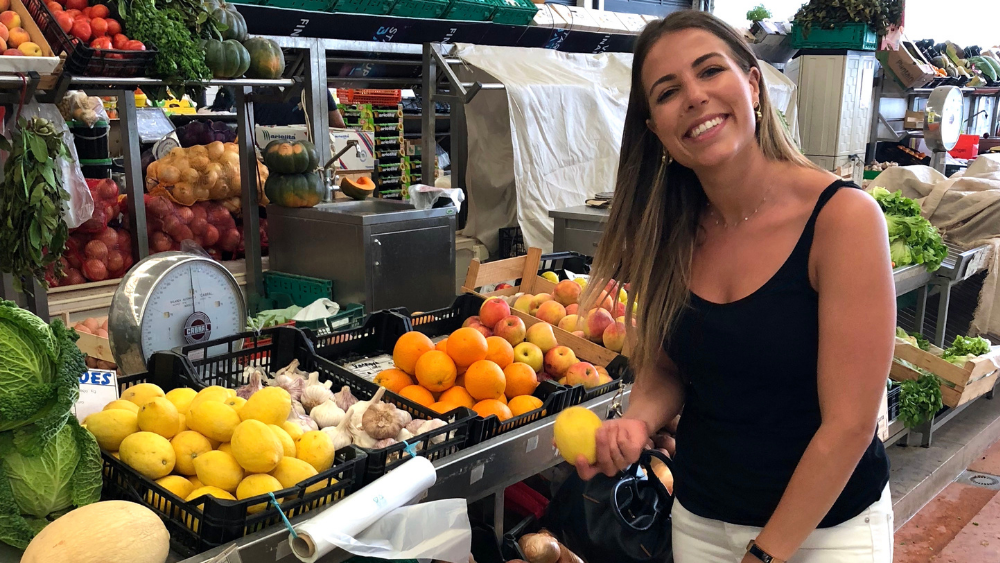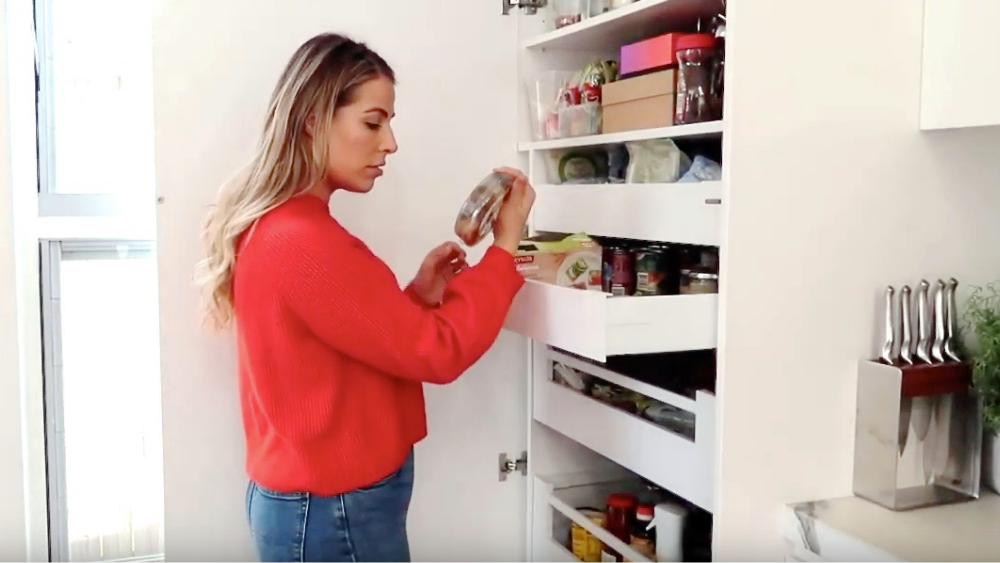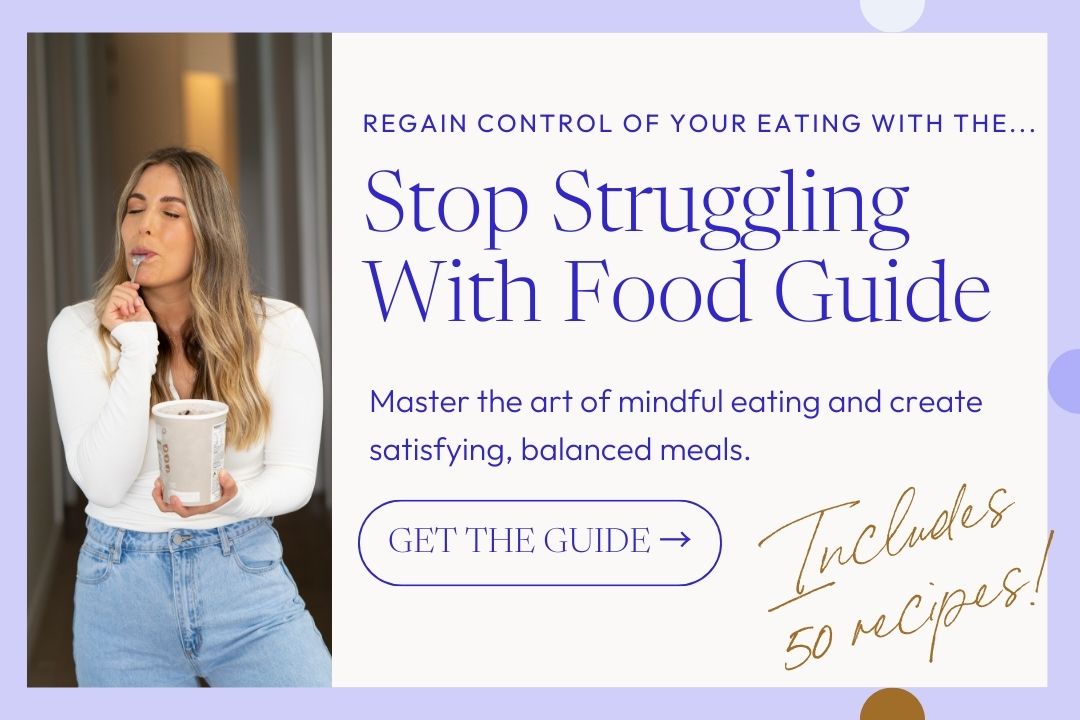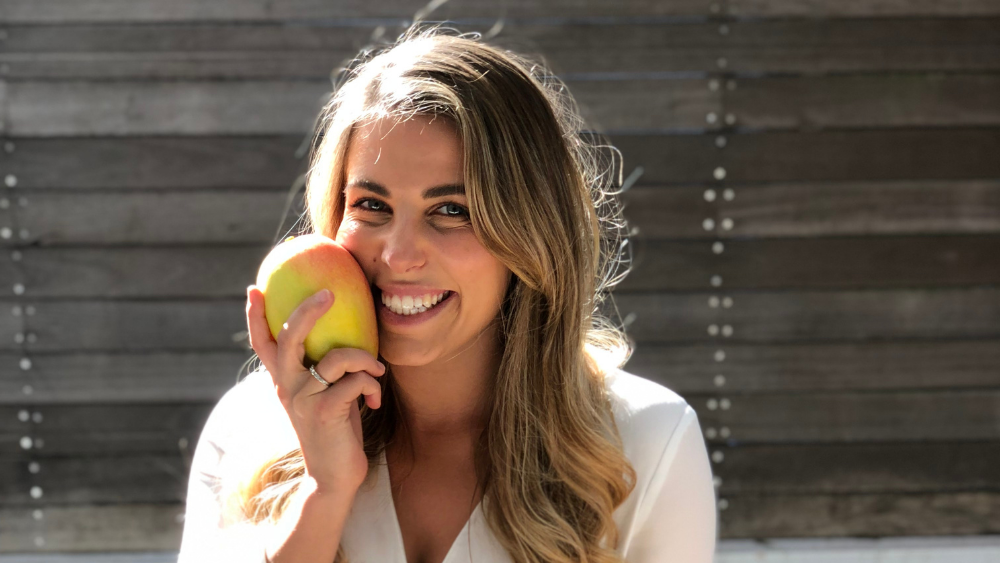Diets don’t work – 96% of them fail long-term. So why are more people on a diet than ever?
Welcome to a brave new ‘wellness’ world where diets are dressed up and paraded as a ‘healthy lifestyle choice’ or ‘a way of eating’. (I call BS.)
This sly rebrand tricks you into thinking you’re doing the “right thing” for your body. But diets, like the Atkins Diet, Cabbage Soup Diet and Lemon Detox Diet to name a few I’ve tried over the years, were much less damaging when they said what they were on the tin (though still plenty harmful.)
Here are the 5 signs you’re on a diet in incognito mode. Beware.
1. You’re following a meal plan
Even if it’s been sold to you as a ‘lifestyle plan’, anything that tells you what to eat for breakfast, lunch and dinner is a diet. It’s okay to get broad meal and snack recommendations, but when deviating from the plan makes you feel like you ‘fell off the bandwagon’, you’re on a diet.

2. You’ve quit sugar
Avoiding or limiting fruit, cutting out whole grains or banning yourself from enjoying a treat is a diet. Making healthier choices like choosing fruit when you want something sweet or cooking more is great but cutting out a whole food group or demonising sugar is not.
3. You’re eating clean
Clean eating can very quickly turn dirty when you feel anxious to make plans because you’re not sure what you’ll be able to eat. If you feel dirty for eating the wrong foods, your ‘clean eating’ diet has become unhealthy.
4. You’re tracking your intake
If you’re recording every calorie and movement in an app – you’re on a diet. It’s great to be mindful and aware of what you eat, but feeling out of control when you don’t track can be dangerous.

5. You’re cutting out whole food groups
Restricting whole food groups like grains, meat, dairy, legumes, fruit or fats is just another form of diet. If you can’t live like that for the rest of your life, it probably won’t be sustainable beyond the 12-week fitness challenge.
The ugly truth about diets
Almost all diets, regardless of their name, are unhealthy. Many diets lead to weight gain (so while you may temporarily lose weight, statistically you’ll regain the weight plus more).
Diets can:
- Slow your metabolism
- Make you crave ‘banned’ foods
- Lead to long term weight gain
- Complicate your relationship with food

The no-diet guide to feeling energised and comfortable in your body
1. Use ‘crowding’
Crowding is really effective and deliciously simple: Focus on what you can eat, not what you’re not allowed to eat. For example: Instead of aiming to ‘eat less takeaway’, try to ‘cook more at home’. You’ll achieve the same thing but it’ll be a much easier and happier process. Instead of saying ‘I won’t snack on lollies anymore’ try ‘I will snack on fruit’.
Add more healthy foods into your diet like plenty of vegetables and fruit and naturally and you’ll crowd out the less healthy choices. This is a much more positive approach.

2. Don’t put a label on it
Don’t define your diet by the things you don’t eat. In fact, do not label your diet at all! If you are inspired by paleo principles, that’s great. If you want to eat more plant-based, go for it. But don’t put rules around it. My diet is always changing to best suit my changing needs so I am flexible.
Sometimes I eat more plant-based options. Other weeks I crave more fats or meat. I probably eat a low-refined sugar diet and barely think about it. It’s the Lyndi diet and it doesn’t bind, control or restrict me.
3. Eat food that makes you feel good
If you asked, your body would tell you it feels good when you eat healthier food.
And it would tell you that it doesn’t feel great when you overeat or eat too much ‘sometimes’ food.
Instead of trying to control your eating, stop and listen to your body. Your body nudging you to make healthier choices. When you drop the guilt and pressure, you might find you naturally gravitate toward to healthier choices – no coercion needed.
I believe there is a natural flow in eating. Sometimes you’ll feel like more substantial choices, other times, you’re going to crave lighter choices. When you aren’t able to flow and eat the choices you really crave, that leads to emotional and out of control eating.

4. Notice when you’re accidentally dieting
Start to notice when you start to ask yourself: “Am I allowed to eat that”?
As soon as you ask that question, note that you’re probably on a diet. You need to give yourself permission to eat everything. Very soon it’ll change to “I am allowed to eat that. But do I really want to”? It sounds subtle, but it makes all the difference.
5. Learn how to become an intuitive eater
Intuitive eating is the opposite of dieting.
It means listening to your body instead of your brain. It involves asking your body when to eat, how much to eat and what it really feels like. It’s actually the best way to be healthy in the long-term.
If you want to become a more intuitive eater and stop binge eating, check out my online program called Binge Free Academy. It’s already helped thousands of people create a healthier, more balanced and intuitive relationship with food.
If you find healthy eating too fussy, and want to take the guesswork out of trying to figure out what to have for dinner every night, check out my Back to Basics App.